21 books to read this fall
Stock up on these highly anticipated page-turners

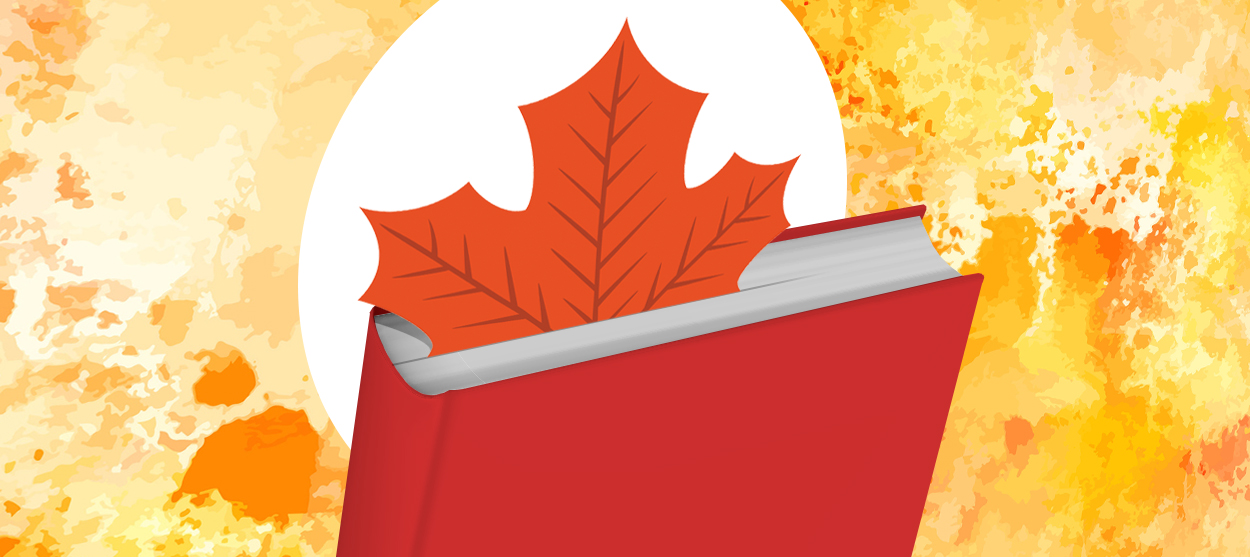
A free daily email with the biggest news stories of the day – and the best features from TheWeek.com
You are now subscribed
Your newsletter sign-up was successful
The final months of the year can feel like a sprint to the finish even during normal times, but 2020's darkening days combined with restrictions on indoor gatherings and the threat of a "twindemic" make the months ahead feel more like a hundred-mile uphill barefoot endurance race through a forest infested with rabid wolves and White Walkers.
But even as other forms of escapism have dwindled — moviegoing is risky, and fall TV is going to be weird — books remain one of the surest bets of quarantine. And there are plenty of new ones to preorder so you never run out, no matter how crazy the world beyond your favorite reading nook might get. Here are the 21 books you'll want to be sure to stock up on for the fall (and if you still need more recommendations, here are our picks for the summer and the first half of the year).
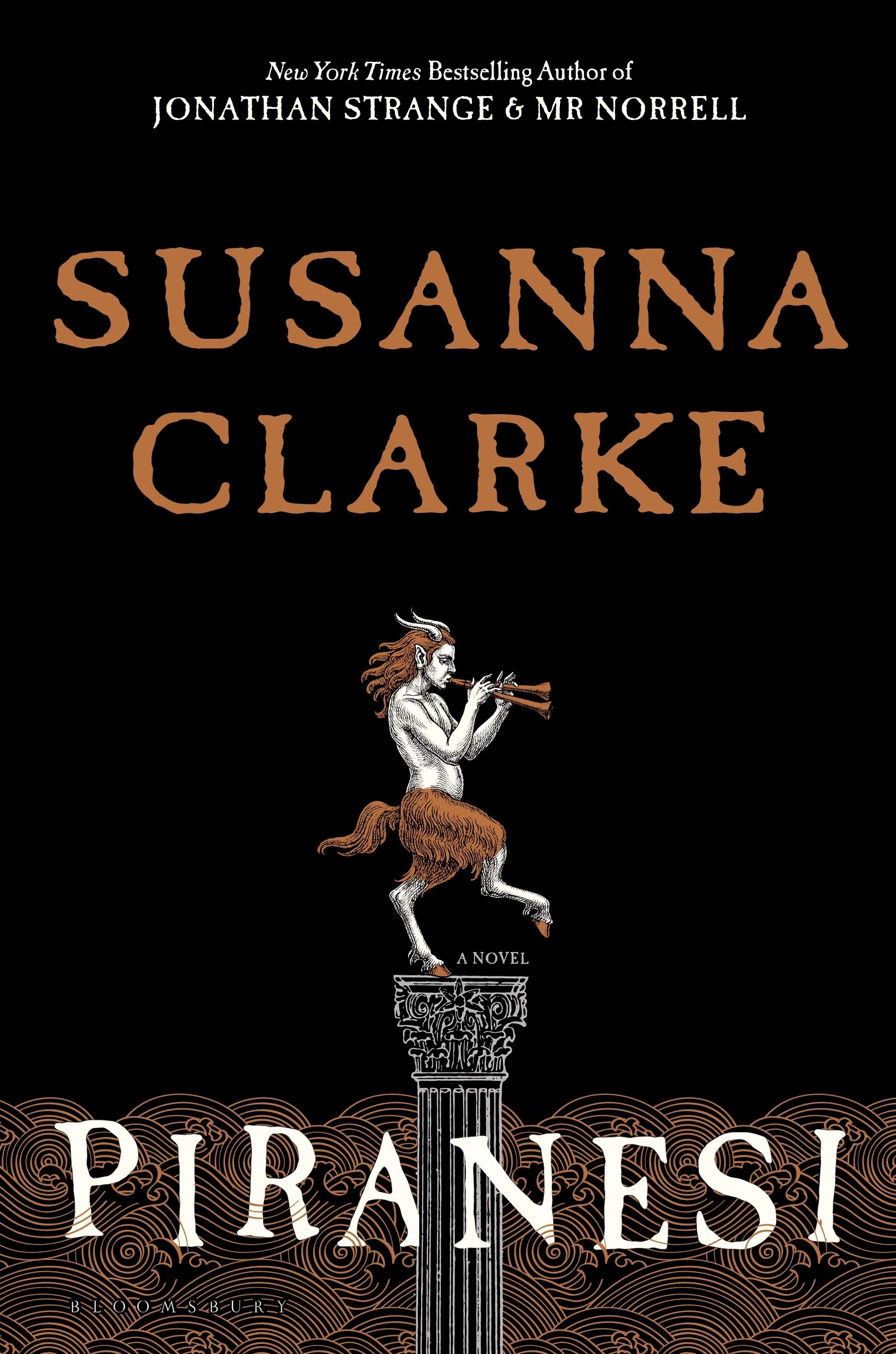
1. Piranesi, by Susanna Clarke (Sept. 15)
The Week
Escape your echo chamber. Get the facts behind the news, plus analysis from multiple perspectives.

Sign up for The Week's Free Newsletters
From our morning news briefing to a weekly Good News Newsletter, get the best of The Week delivered directly to your inbox.
From our morning news briefing to a weekly Good News Newsletter, get the best of The Week delivered directly to your inbox.
It has been 15 years since Susanna Clarke blew the world away with her 800-page debut novel, Jonathan Strange and Mr. Norrell. You can imagine the pressure, then, for her follow up, Piranesi, but the early reviews assure it does not disappoint: It is an "infinitely clever novel," The Washington Post says, while Kirkus deemed it "weird and haunting and excellent." Slim by Clarke's standards, at just under 300 pages, the story is told via the journal entries of a character called Piranesi, whose world is the House — a labyrinthine structure of endless hallways, in which there is only a single known co-occupant, called the Other. "If little Jack from Emma Donoghue's Room stayed trapped in that garden shed until he was 35, he might sound something like Piranesi," explains the Post. Piranesi appeared out of nowhere — even Clarke's agent apparently had no idea she was writing it — and like all magical things, you won't want to let it pass you by.
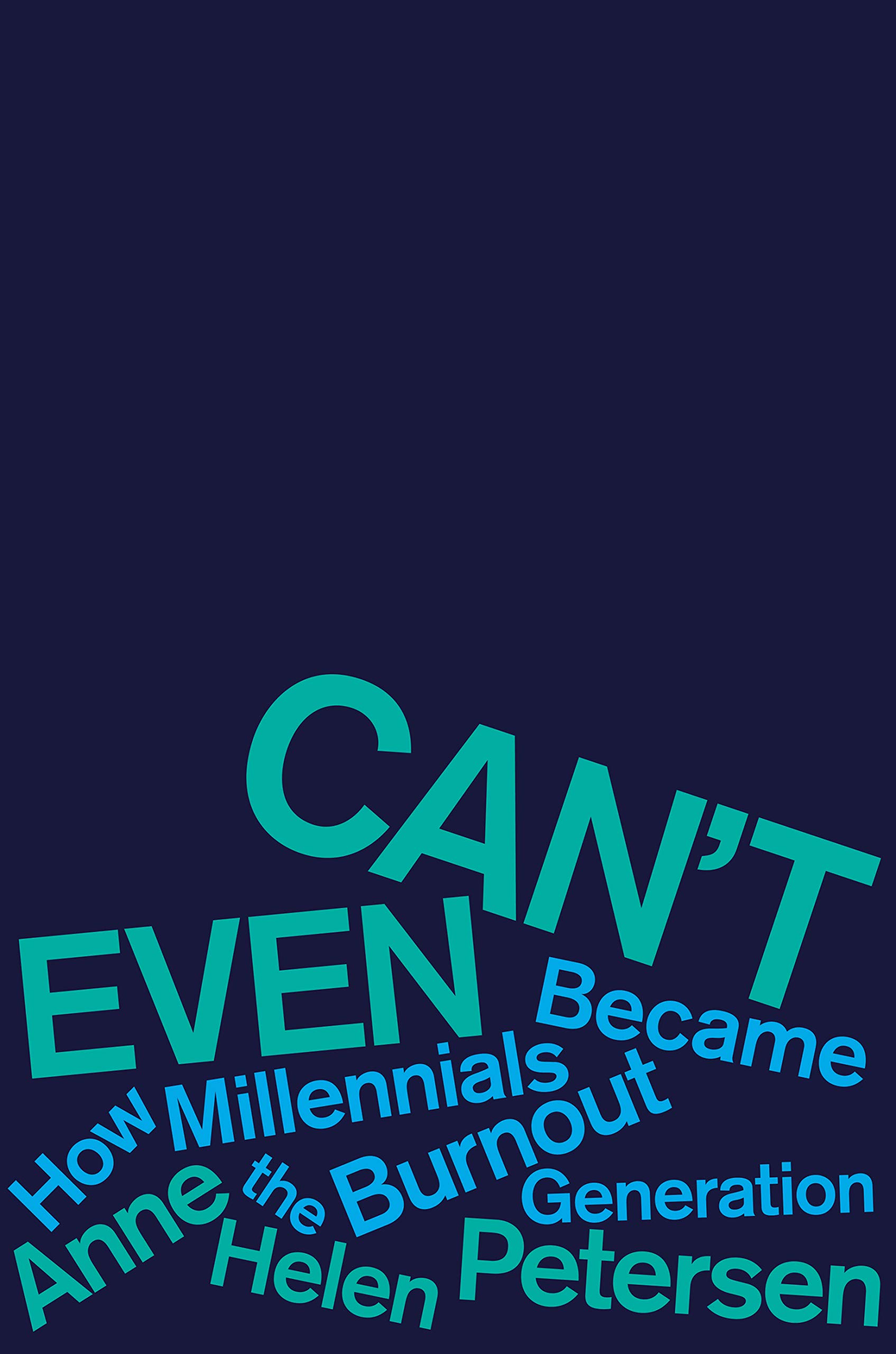
2. Can't Even: How Millennials Became the Burnout Generation, by Anne Helen Petersen (Sept. 22)
I can think of few pieces of writing in the past several years that better helped me to understand myself than Anne Helen Petersen's "How Millennials Became The Burnout Generation," written in early 2019 for BuzzFeed News (where she was, until very recently, their senior culture writer). Can't Even expands on that article with robust additional reporting that refutes the reputation of millennials as being spoiled, entitled, and lazy by arguing that we've detrimentally internalized the belief that we should be working all the time ("Life has always been hard, but many millennials are unequipped to deal with the particular ways in which it's become hard for us," she wrote in that initial article). In the run-up to Can't Even's release, Petersen's publisher has been promoting swag including a tote with the slogan "f--k passion, pay me," and a sweatshirt that reads "capitalism is broken," to give you a better idea of where Petersen ultimately lands on the forces behind our generational burnout. Still, Can't Even might be even more essential not for millennials, but for the Boomers and Gen-Xers who are willing to have their assumptions about their kids' generation challenged.
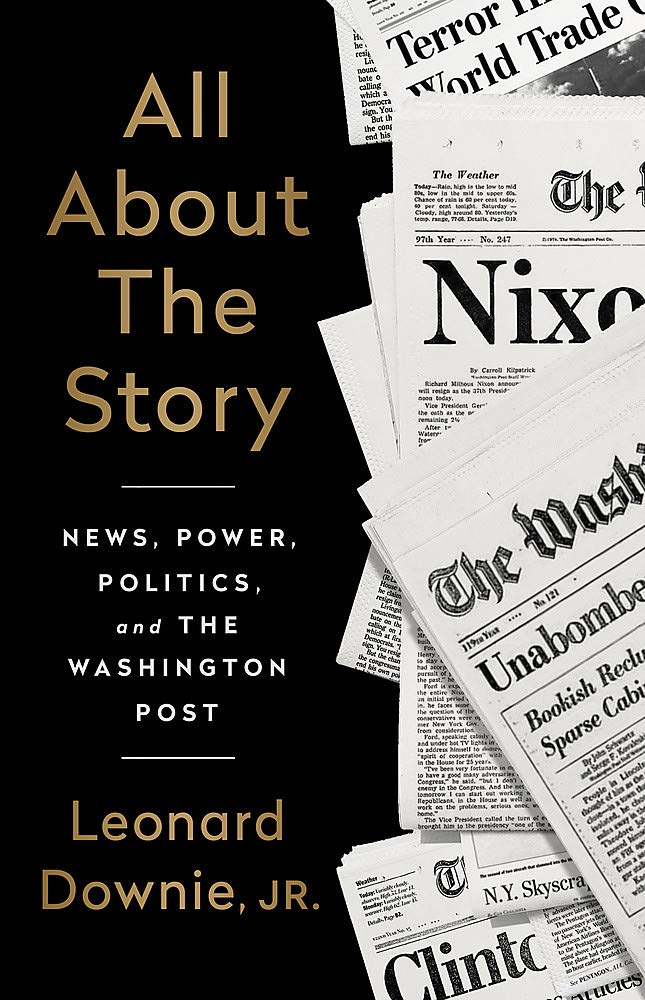
3. All About the Story: News, Power, Politics, and the Washington Post, by Leonard Downie Jr (Sept. 22)
A free daily email with the biggest news stories of the day – and the best features from TheWeek.com
In Leonard Downie Jr.'s All About the News, a memoir of his nearly 50 years at The Washington Post, he tells a story about the wee morning hours of Nov. 8, 2000, when at the last moment his team made the difficult decision to pull their prepared headline about Texas Gov. George W. Bush winning the election, opting for the more prudent "Presidential Cliffhanger Awaits Florida Recount." Almost 20 other major newspapers, including The New York Times, erroneously published headlines the next morning claiming Bush had won instead, although Florida was in fact doing a recount and Vice President Al Gore had not yet conceded. The anecdote might sound like an interesting bit of newsroom trivia — of which there is plenty in All About the News, which follows Downie's journey up through the ranks from intern to executive editor of the Post — but putting the careful truth over what might temptingly be the "better story" is very relevant today (media columnist Margaret Sullivan, for example, recently cited the 2000 election as cautionary tale about the dangers of jumping the gun when reporting on the 2020 election when the "sitting president … [is] threatening not to accept a defeat"). As Publishers Weekly puts it, "At a time when the news media itself is increasingly becoming part of the story, this insider take on newsroom culture resonates."
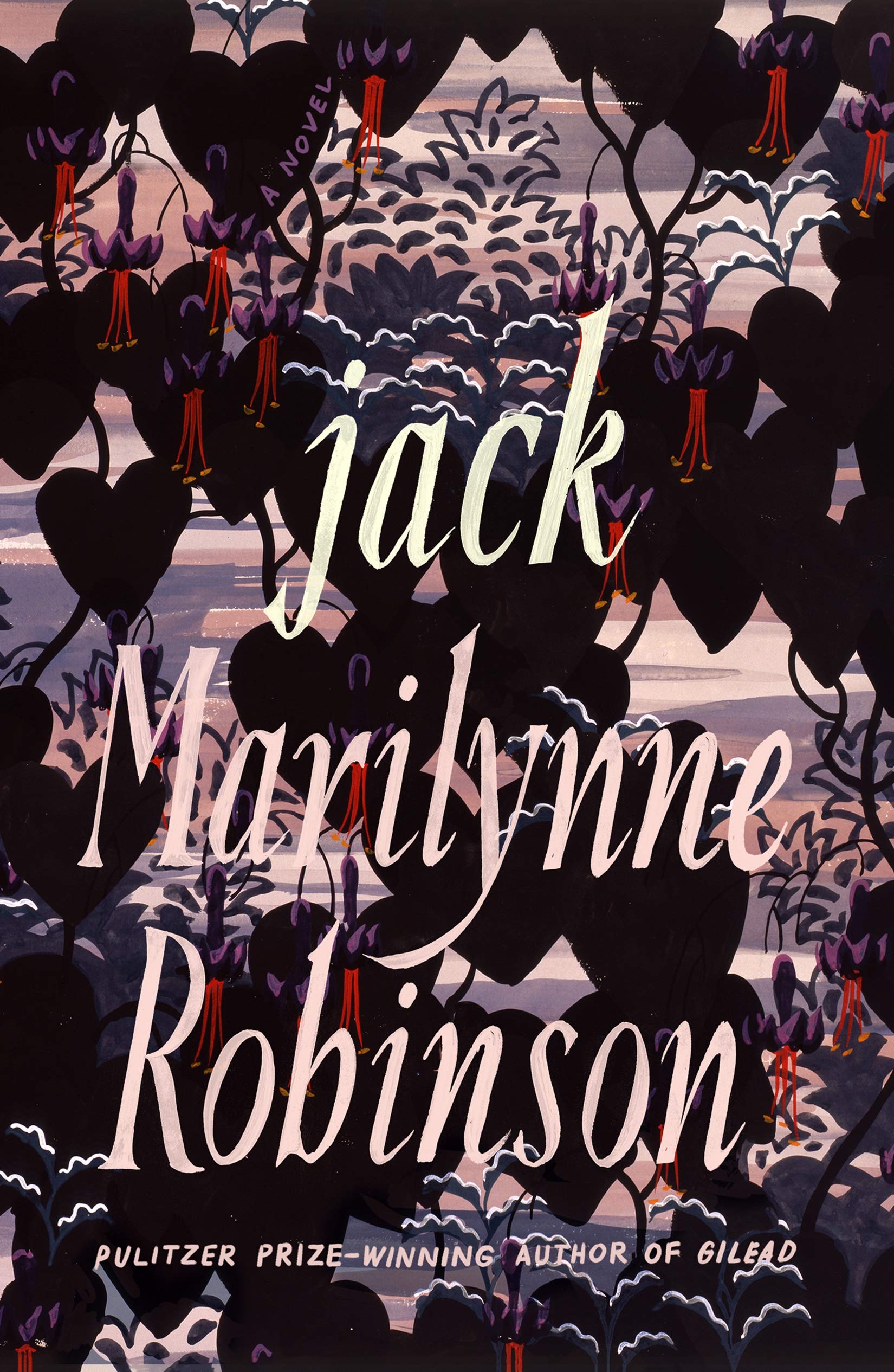
4. Jack, by Marilynne Robinson (Sept. 29)
Marilynne Robinson closes out the quartet she began with 2004's Pulitzer Prize-winning Gilead with Jack. Returning to the fictional town of Gilead, Iowa, the newest installment focuses on Jack Boughton, the son of Robert Boughton, the best friend of the town's Congregationalist minister whose story was the heart of the first book. "Jack Boughton was the closest thing Gilead had to an antagonist, a man who returns to his childhood home after many years away to gauge whether the town would be a suitable place to bring his new family," writes LitHub. "The catch is that Jack's common law wife is an African-American woman, and this is a conservative Midwestern town in 1956 whose Black residents have long since left." And though "Jack fits beautifully into the subtle weave of Robinson's Gilead books," The Financial Time writes, "it could perfectly well be read on its own."

5. The Meaning of Mariah Carey, by Mariah Carey (Sept. 29)
*Mariah intensifies* with the release of her long-awaited first memoir, The Meaning of Mariah Carey. Though details so far have been kept pretty under wraps, the singer started working on the book with Michaela Angela Davis during a period of "looking inward" after she publicly disclosed her bipolar disorder diagnosis; she has said the memoir will be "composed of my memories, my mishaps, my struggles, my survival, and my songs. Unfiltered." Carey, who reigned as the best-selling female artist of all time before that title passed to Taylor Swift, has struggled over the course of her 30-year career with "complex issues of race, identity, class, childhood, and family trauma during her meteoric rise to music superstardom," her publisher writes. The Meaning of Mariah Carey will at last lay it all bare.
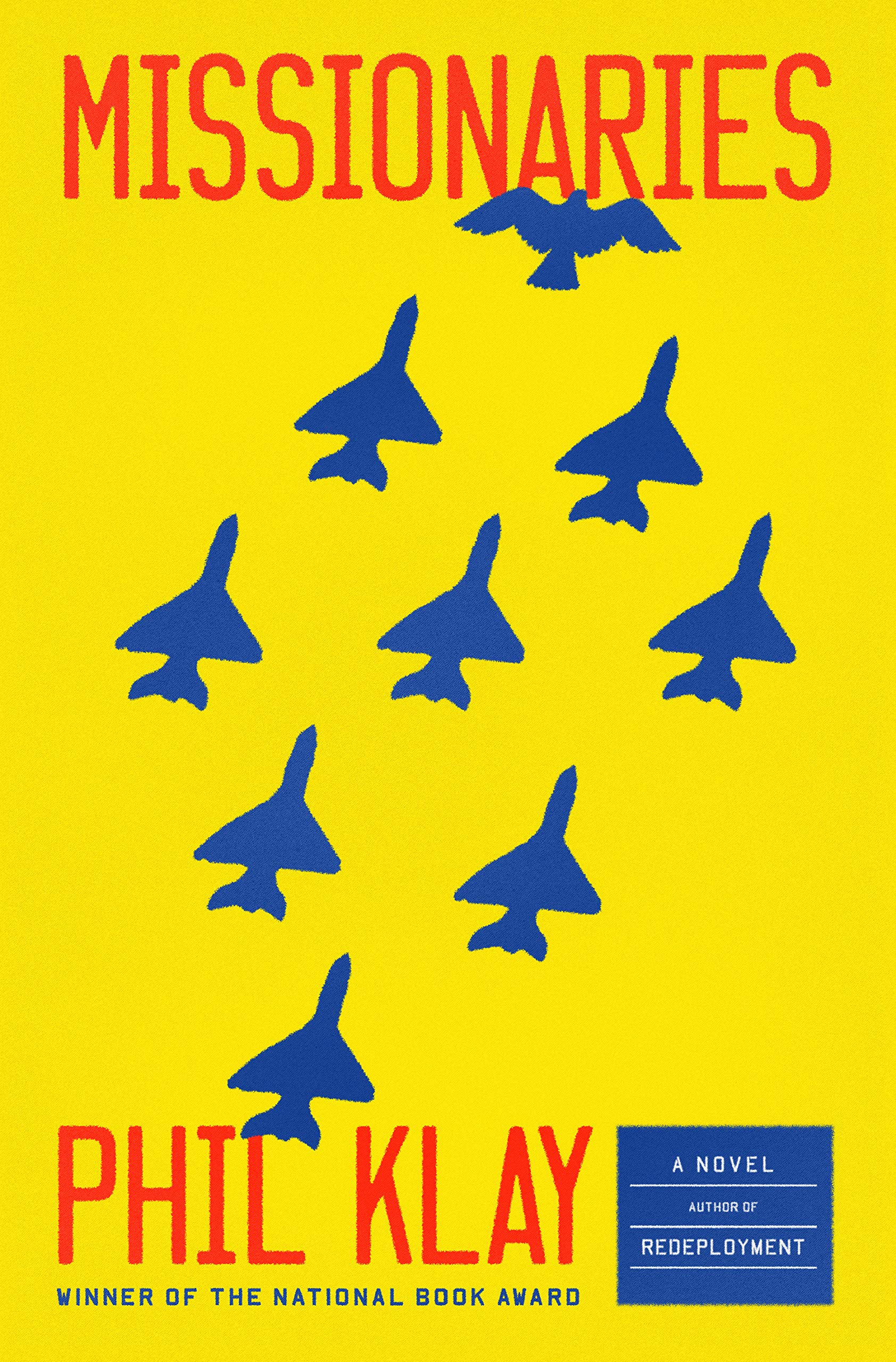
6. Missionaries, by Phil Klay (Oct. 6)
I've been a huge Phil Klay fan since his 2014 National Book Award-winning short story collection, Redeployment, which centered on U.S. soldiers in the Iraq War and drew on the author's experience in the United States Marine Corps (the title story, in particular, is astoundingly great). I'm beside myself with excitement over his debut novel, Missionaries, which leaves the Middle East for Colombia; Klay spent six years doing research on the country and "the effects of the modern way of war on regular people," his publisher writes. The story follows four central characters: Mason, an American Special Forces medic reassigned to Colombia; American journalist Lisette Marigny, likewise reassigned to Bógota; Juan Pablo, a Colombian officer; and Abel, a lieutenant conscripted into the local militia. "Through these four protagonists, Klay unravels the complexity of interventionist American operations abroad, from Kabul to Medellín," writes Publishers Weekly.
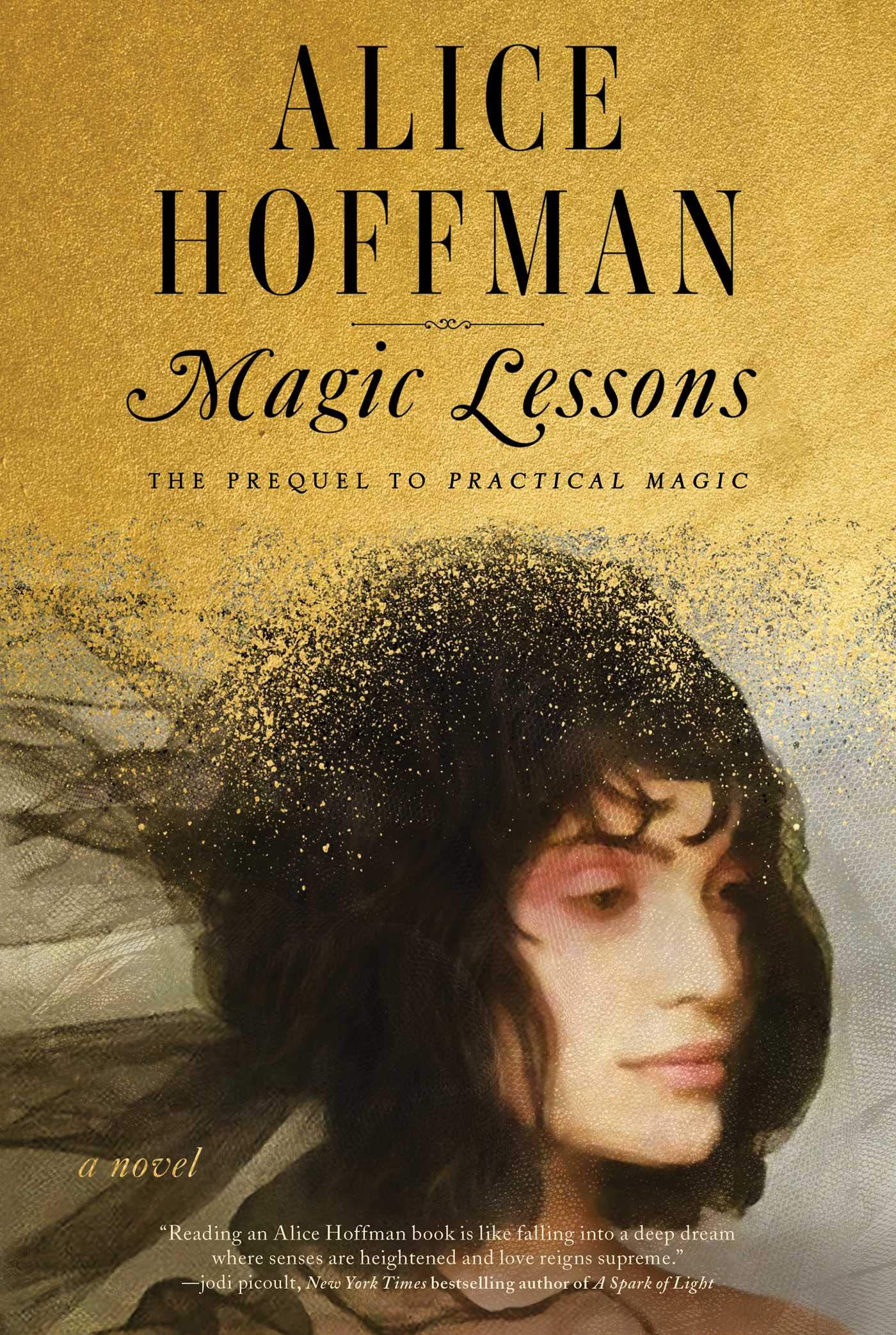
7. Magic Lessons, by Alice Hoffman (Oct. 6)
The ever-prolific Alice Hoffman follows up 1995's cult classic Practical Magic and its prequel, 2017's The Rules of Magic, with Magic Lessons, which at last tells the origin story of Maria Owens, who is the ancestor of sisters Gillian and Sally from the first book. Set in England in 1664, Maria is abandoned as a baby and taken in by Hannah Owens, who teaches her the "Unnamed Arts" of witchcraft. Over the course of the novel, Maria's story will take her from England to Massachusetts, and delve into the beginnings of the Owens curse. "My readers sent me back to the world of Practical Magic. I had so many letters and messages asking for more, and after writing The Rules of Magic, which takes place in the 60s and 70s, I decided to go all the way back, to the original Owens ancestor, Maria Owens," Hoffman explained to Library Journal. "I'm always interested in how the past influences the present, who the 'ghosts in the nursery' are, who has influenced us, even if we never knew them."
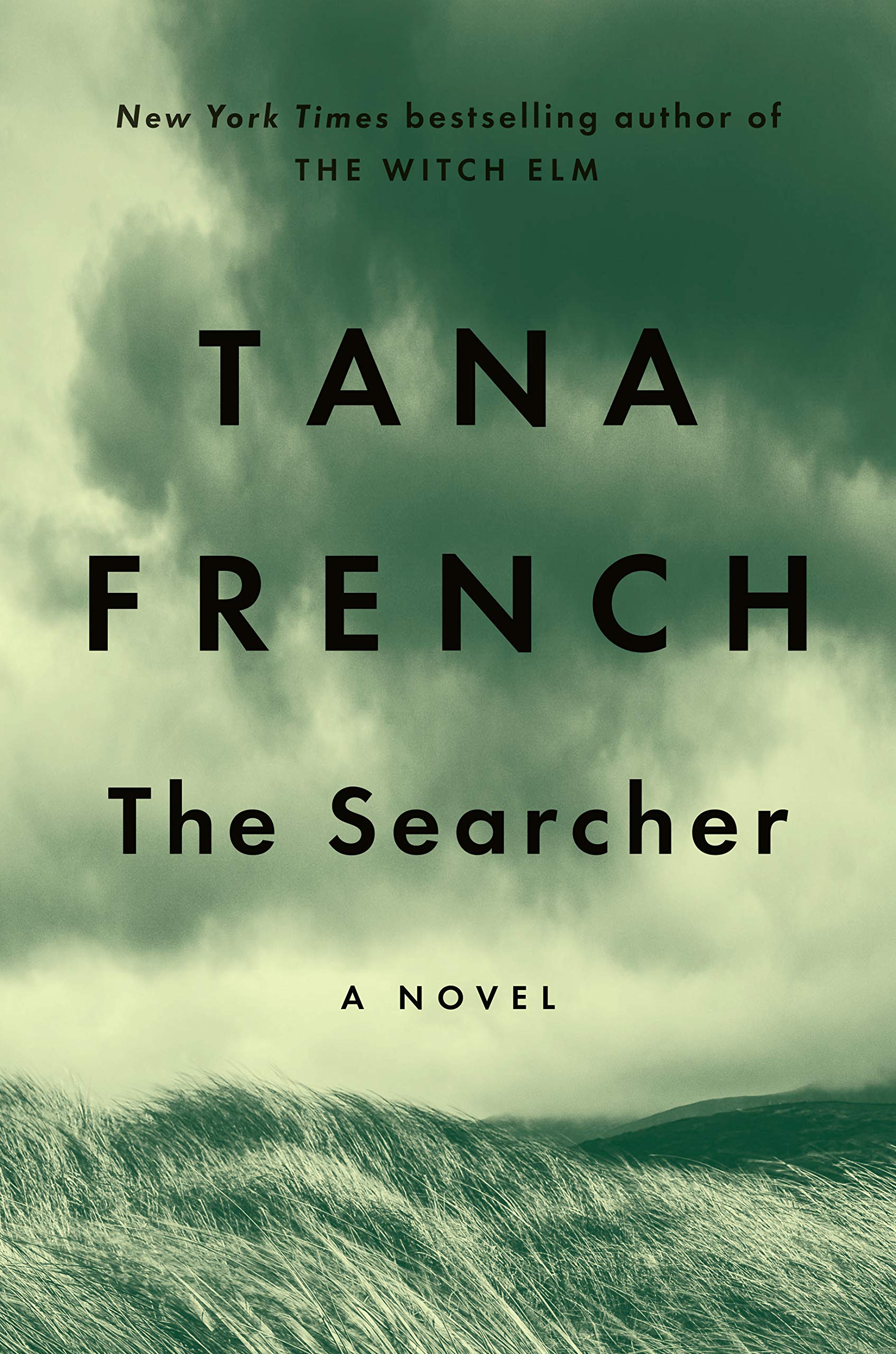
8. The Searcher, by Tana French (Oct. 6)
I'm not convinced there are any "kinda sorta" Tana French fans: To read her is to be a diehard devotee. You can imagine the level of excitement, then, for The Searcher, another standalone thriller like 2018's The Witch Elm, and unrelated to her popular Dublin Murder Squad series. This novel falls in the "one last job" genre, following Cal Hooper, a Chicago detective who retires to a village in rural Ireland — where a boy appeals to him to find out what happened to his missing brother, since the local police don't seem to care. "It's got, I guess, slightly a flavor of a Western, almost," French told Entertainment Weekly. She also assured, "at least this one isn't as depressing as [The Witch Elm]! I don't think I need anything depressing right now." Publishers Weekly gave it a starred review, adding: "Crime fiction fans won't want to miss this one."
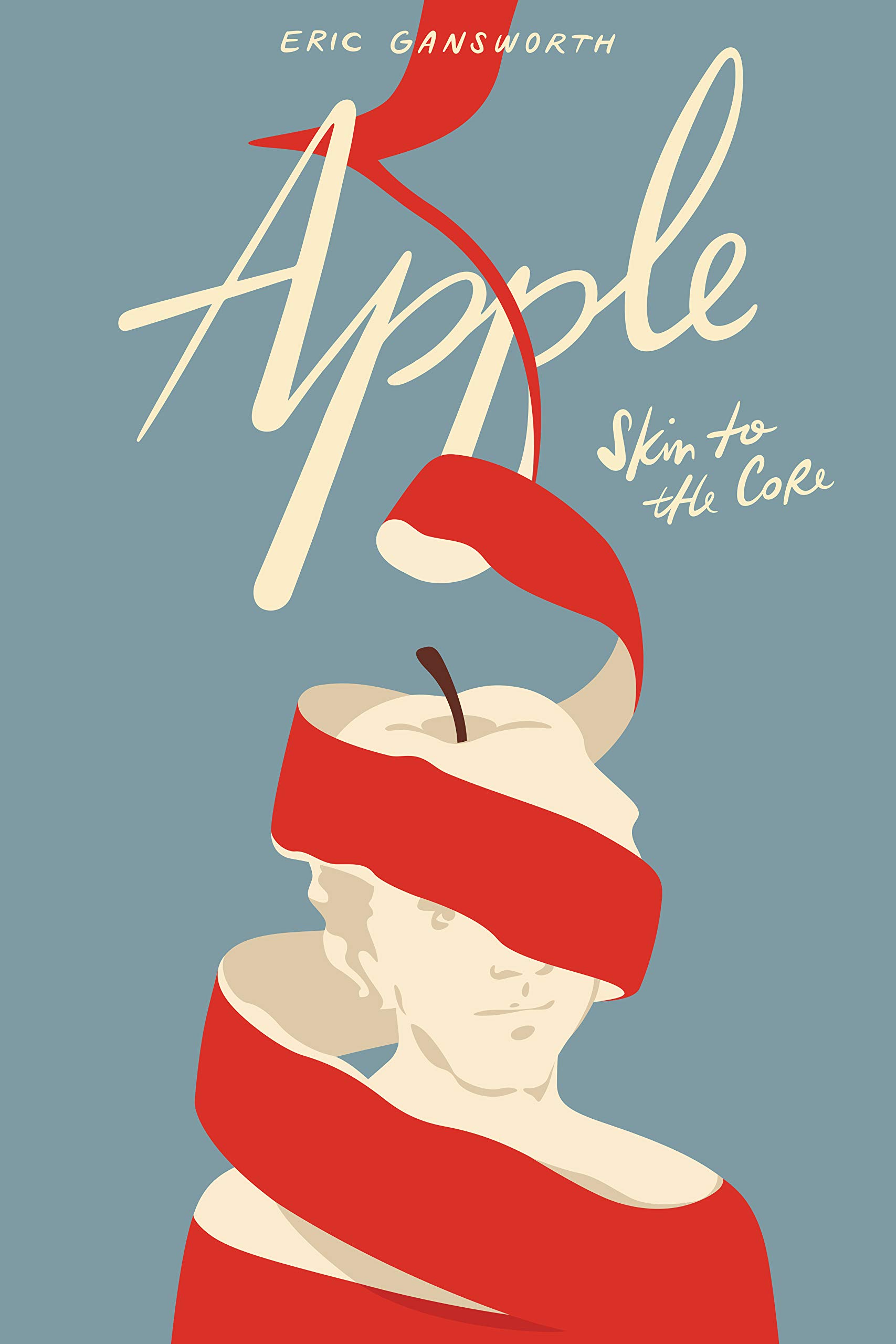
9. Apple: (Skin to the Core), by Eric Gansworth (Oct. 6)
Apple (Skin to the Core) is a memoir in verse from Eric Gansworth; the title is a reference to a racial slur in Native communities, meaning "red on the outside, and white on the inside." A citizen of the Onondaga Nation who grew up in the Tuscarora Nation (the present-day territories of both are in upstate New York), Gansworth describes the difficulties of being a family of 11 in a three-bedroom home, and tells the story of his grandparents, who were made to attend a boarding school where they were stripped of their Indigenous identities: "The effects of the boarding schools seep down into future generations, including Gansworth's, even though the progeny never experienced the horrors themselves," explains Shelf Awareness. Though the book is marketed toward teens (the 12- to 18-year-old group), adults won't want to miss this "rare and special read," as Kirkus calls it. You can find an excerpt at Paste.
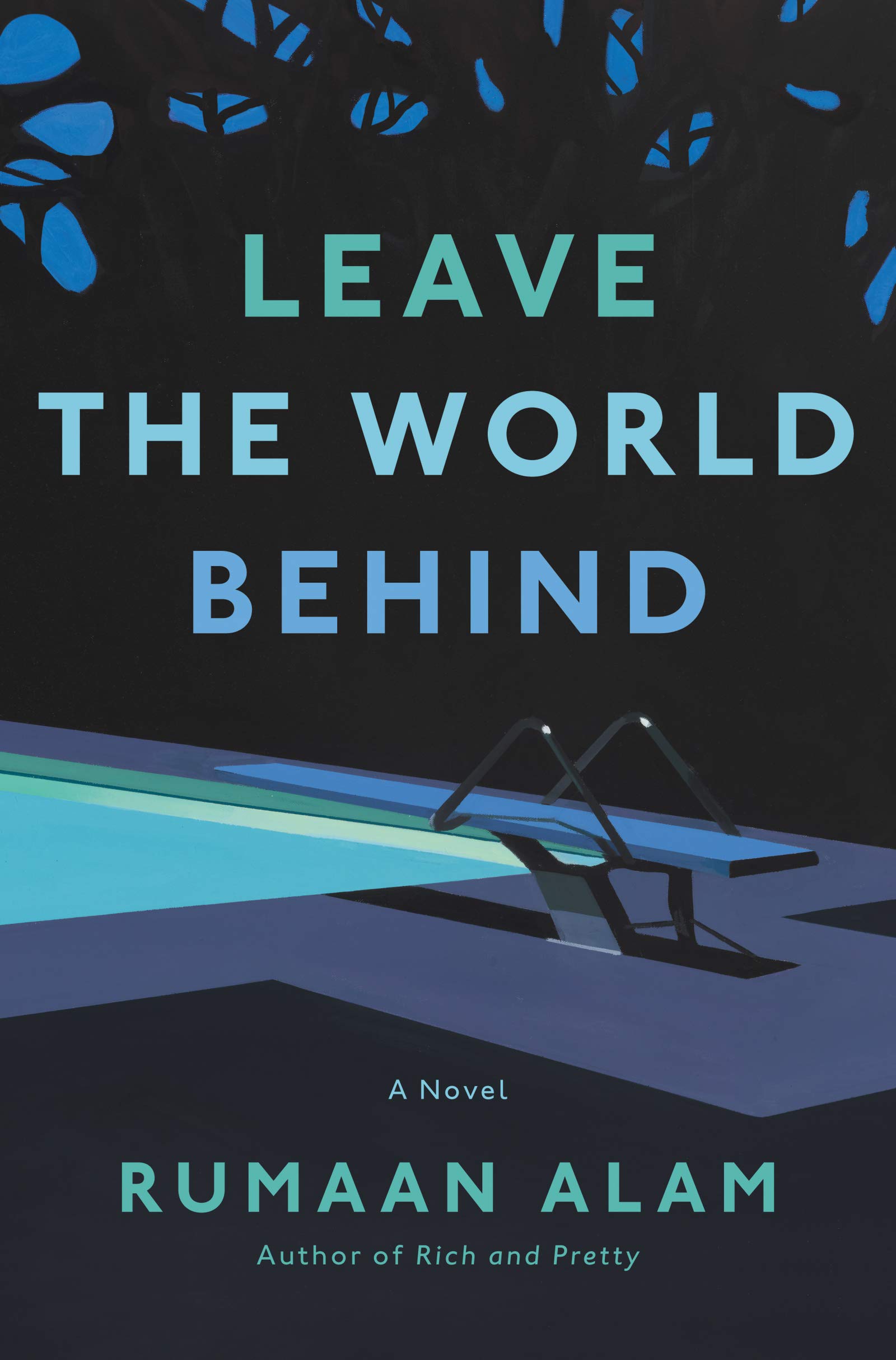
10. Leave the World Behind, by Rumaan Alam (Oct. 6)
One of the biggest don't-miss-it books of the fall will be Leave the World Behind, the third novel from Rumaan Alam. Amanda and Clay are a white couple from Brooklyn who rent a house in the Hamptons for a one-week summer vacation with their kids ("step into our beautiful house and leave the world behind," the Airbnb posting reads). But after the East Coast power grid goes down, the rental home's owners — an older Black couple — show up at the door, having fled the city. In duel starred reviews, Kirkus raves that "Alam's story unfolds like a dystopian fever dream," while Publishers Weekly writes that "this illuminating social novel offers piercing commentary on race, class, and the luxurious mirage of safety, adding up to an all-too-plausible apocalyptic vision." Netflix has already won world rights in a "vigorous bidding battle" for the forthcoming adaptation, with Julia Roberts and Denzel Washington starring, and Mr. Robot's Sam Esmail directing.
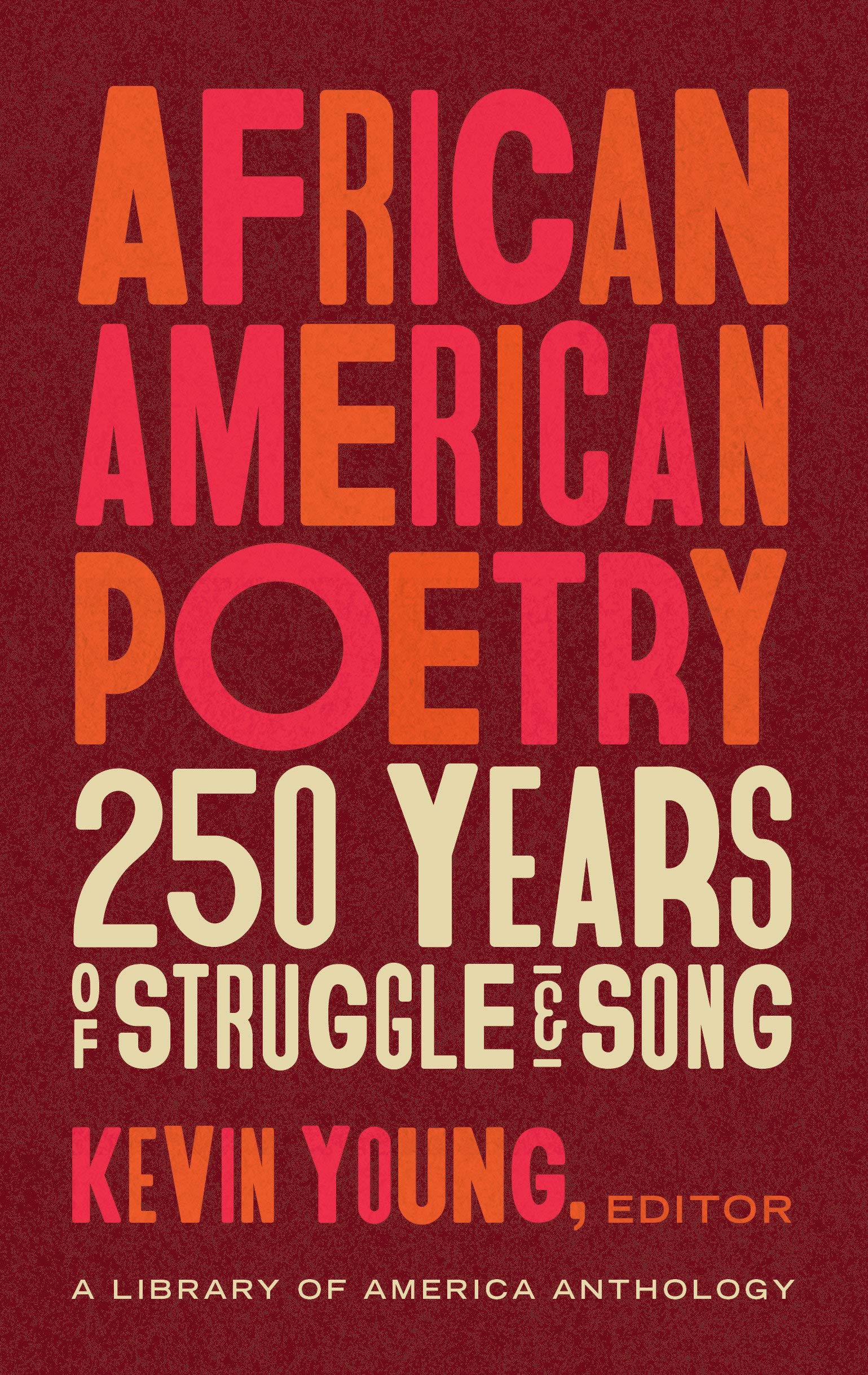
11. African American Poetry: 250 Years of Struggle & Song, edited by Kevin Young (Oct. 13)
New Yorker poetry editor Kevin Young takes on the monumental task of condensing 250 years of African-American poetry into this must-own anthology, which strives to offer "a comprehensive look at the centuries of song and struggle that make up African-American verse, a legacy that is fruitful and large enough to barely be represented by one volume." Ranging from Phillis Wheatley's "On Imagination," published in 1773, to Jamila Woods' "Ode to Herb Kent," published in 2016, the book covers everything from slavery and civil rights, the Harlem Renaissance and the Dark Noise Collective — all presented with "biographies of each poet and notes that illuminate cultural references and allusions to historical events," publisher Library of America promises. "Poetry itself, especially African-American poetry, still awaits discovery," writes Young, who spent six years pulling this collection together, according to the Chicago Tribune. Discover it.
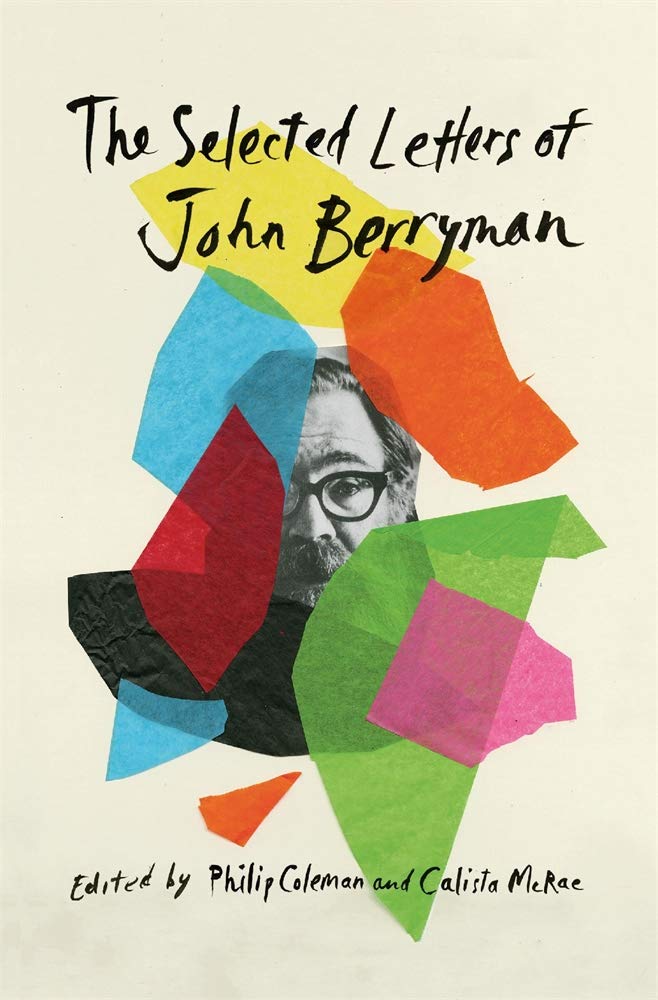
12. The Selected Letters of John Berryman, edited by Philip Coleman and Calista McRae (Oct. 13)
There is such a joy in reading collections of selected letters — in part, perhaps, because there will be no modern-day equivalent, with our conversions now limited to ephemeral emails, texts, and vanishing DMs. For the first time, however, the correspondences of Pulitzer Prize-winning poet John Berryman have been gathered in this volume, beginning with a letter to his parents written in 1925 and ending with a letter sent just before his death by suicide in early 1972. Totaling some 600 letters sent to nearly 200 people — including editors, students, and fellow writers like Ezra Pound, Adrienne Rich, and Saul Bellow — the poet's correspondences offer a window onto American literature in the mid-20th century. "Pre-fax, pre-email, pre-text, here are hundreds of pages of loving and painful letters, of hopeful and disappointed letters, of joyful and death-haunted letters, of cautious and gossipy letters, of merry and hurt letters, of phallic and fatigued letters, of self-deprecating and vain letters, of admiring and critical letters," writes poet Henri Cole.
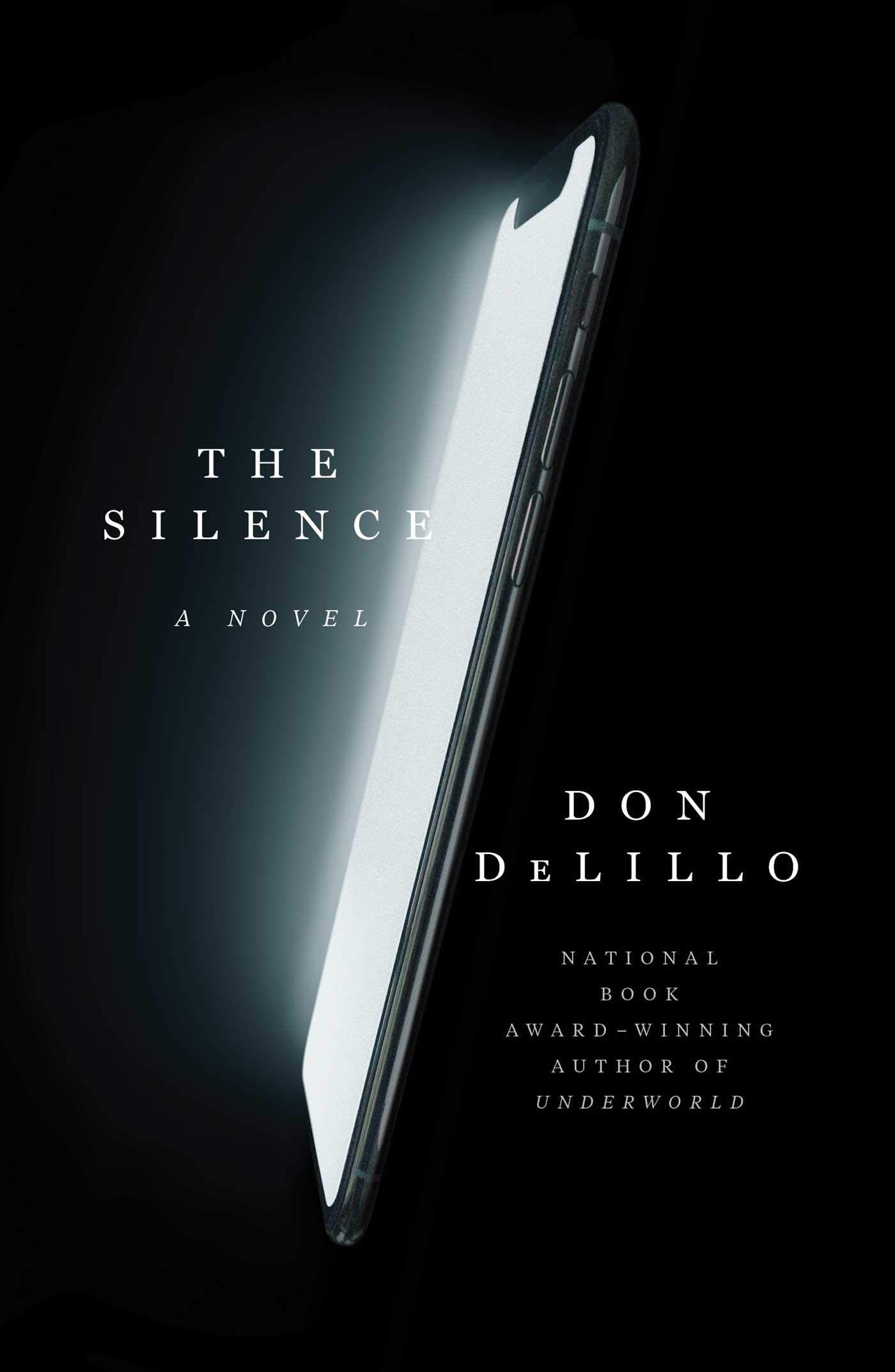
13. The Silence, by Don DeLillo (Oct. 20)
A new Don DeLillo novel is an event, and The Silence couldn't feel more timely. The 17th novel by the 83-year-old author of Underworld and White Noise, The Silence is set on Super Bowl Sunday in 2022, as a physics professor, her husband, and her former student await a couple who are inbound on a "dramatic flight from Paris" after a global surge knocks down computers worldwide. "I began writing the novel in 2018, long before the current pandemic," DeLillo said in a statement provided to The Associated Press. "I started with a vision of empty streets in Manhattan. The idea of the silence grew from sentence to sentence, from one chapter to the next." And according to Kirkus, the resulting novel is a "brief, disturbing story [that] gets the sudden breakdown of society exactly right."
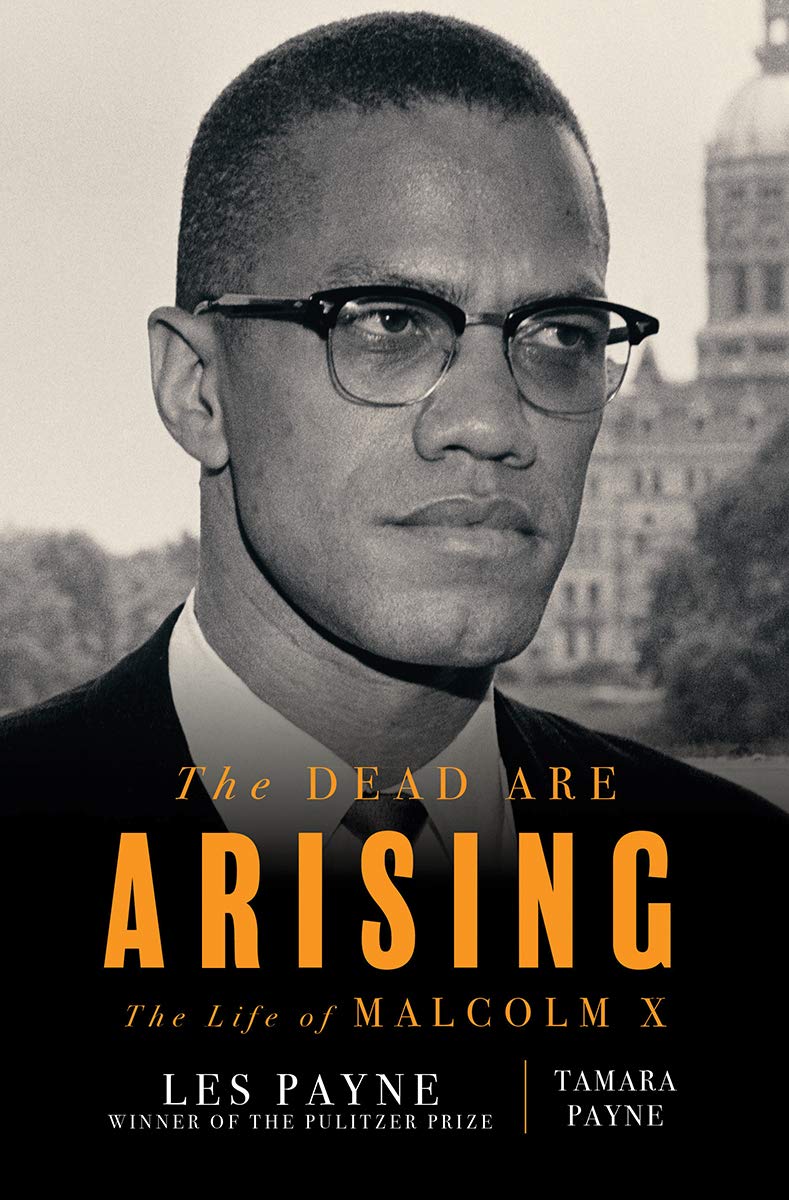
14. The Dead Are Arising: The Life of Malcolm X, by Les Payne and Tamara Payne (Oct. 20)
"Fervid and fearless" Pulitzer Prize-winning journalist Les Payne died in 2018, before completing the biography of Malcolm X that he began three decades prior. His daughter, Tamara, took it upon herself to finish the work. The result is a "richly detailed account … based on hundreds of interviews with Malcolm X's family members, childhood friends, cellmates, allies, and enemies, and meticulously tracks his journey from Omaha, Nebraska, where he was born Malcolm Little in 1925, through his … assassination in 1965," Publishers Weekly writes. LitHub's John Freeman additionally writes that, "probing and well paced, full of new glimpses of the man becoming the man we still don't quite know today, The Dead Are Rising does not read like a book unfinished, but rather a deliberately and beautifully written portrait." It's safe to say, look for this one being named when awards season comes around.
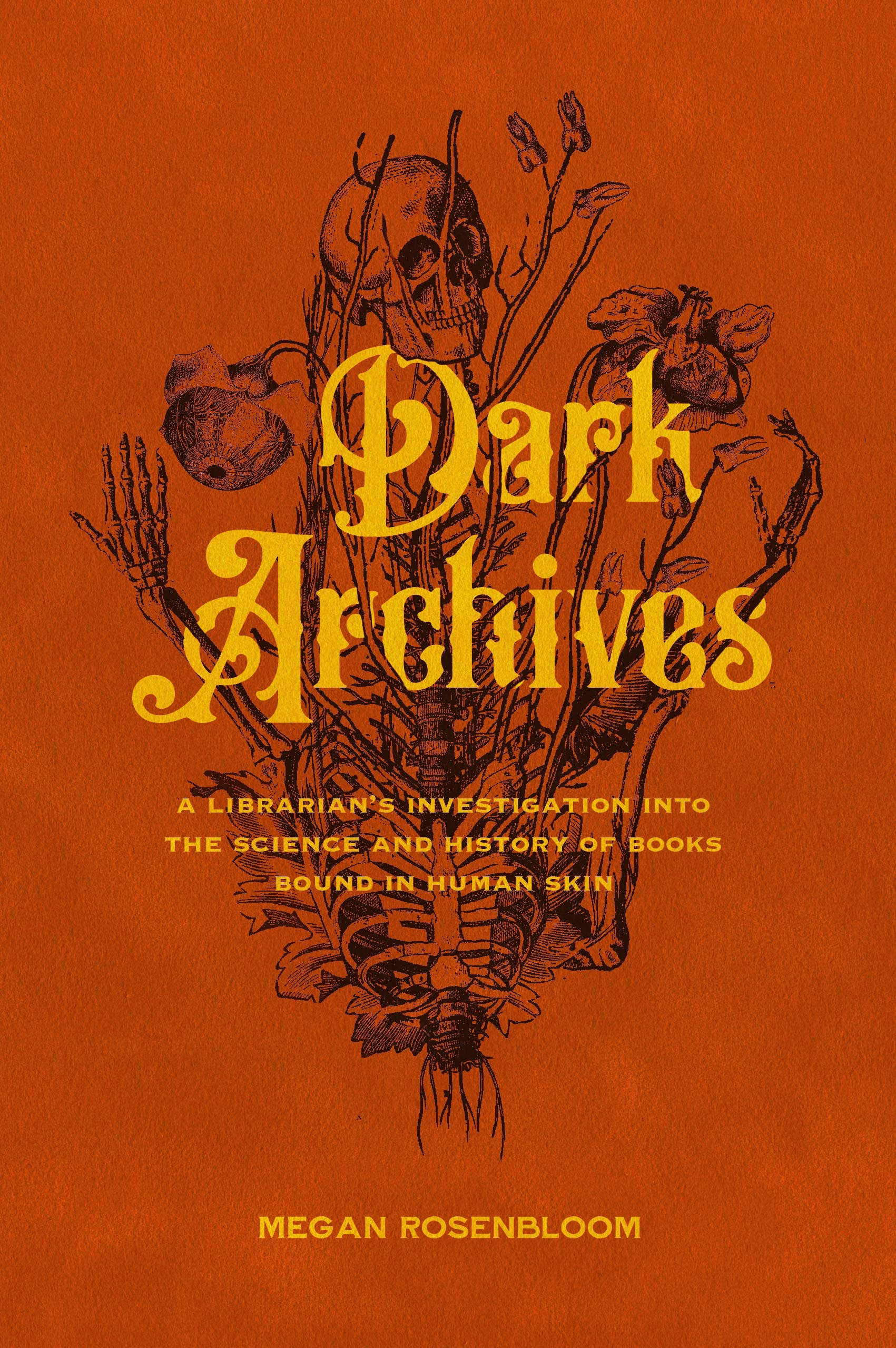
15. Dark Archives: A Librarian's Investigation into the Science and History of Books Bound in Human Skin, by Megan Rosenbloom (Oct. 20)
Murderinos are going to want to pay attention to this one: Megan Rosenbloom, a librarian at UCLA, explores the unusual topic of "anthropodermic bibliopegy" — that being the practice of bookbinding using human skin — in this morbidly fascinating book. But don't be fooled by that just-before-Halloween release date: "Her investigation into the past reveals much about the history of medicine and the ways 18th- and 19th-century American and European medical research were inextricably connected to slavery and the prison system, while her investigations into the current state of anthropodermic books involve working with scientists … and considering the pros and cons of keeping human-skin books in one's collection," Library Journal writes. What's really exciting is how much this book is a grab-bag for nerds with slightly, uh, uncommon interests: It hits on medical history, bibliography, rare books, social justice, clinical empathy, murder, and death positivity, while spanning approximately 200 years of history, Rosenbloom has said.
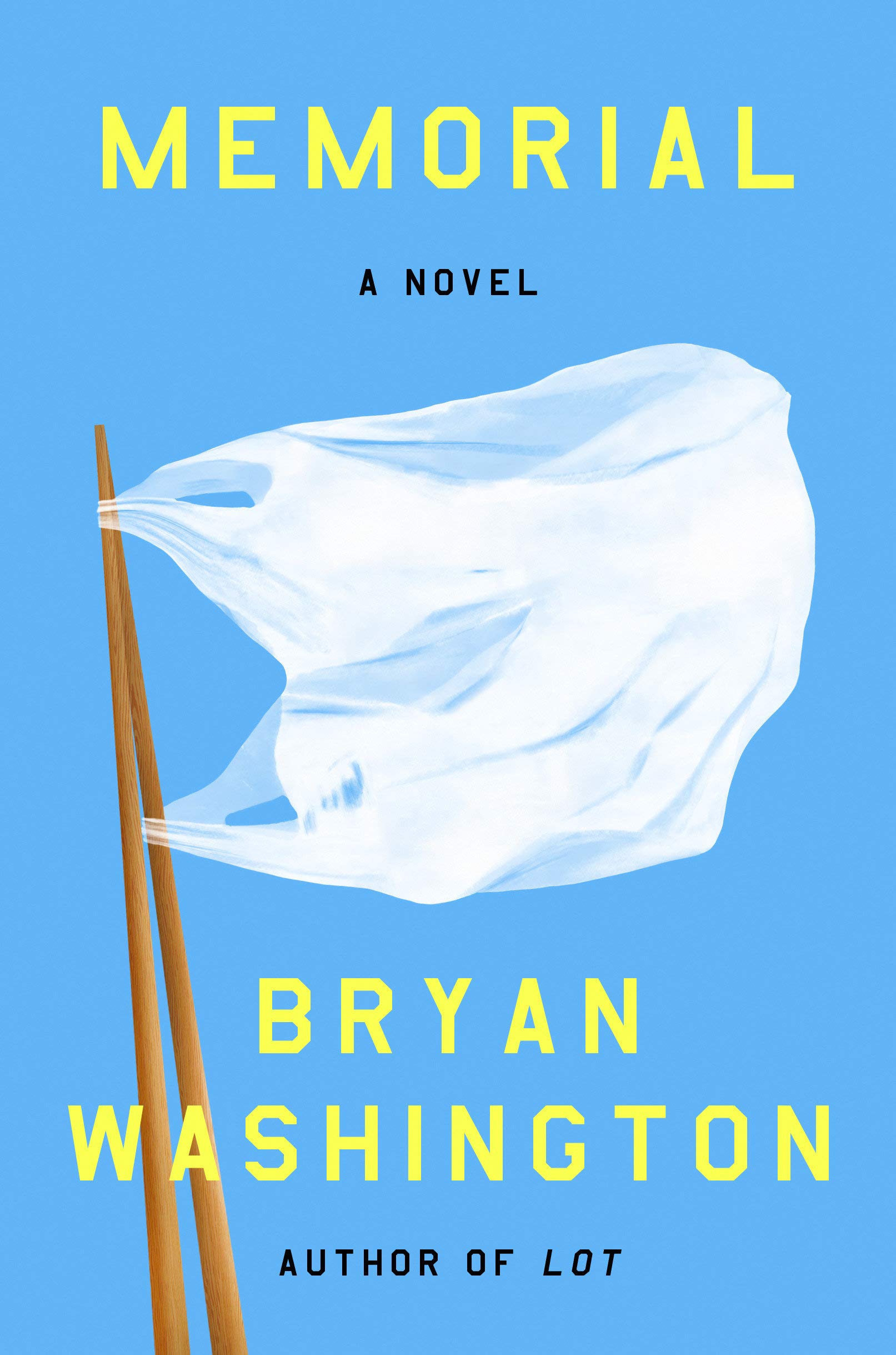
16. Memorial, by Bryan Washington (Oct. 27)
Bryan Washington's 2019 collection of short stories, Lot, was named as both one of Barack Obama's and The New York Times' favorite books of the year; right on its heels comes his debut novel, Memorial. Washington described the book to Entertainment Weekly as being a "gay slacker dramedy" — "which isn't inaccurate," he adds, "but I also think it's a book about trying to navigate the creases a life can hold, and just trying to be okay." The book (which is already getting rave reviews) focuses on Benson, a Japanese American chef, and Mike, a Black daycare teacher, who live together in Houston but are feeling the cracks in their four-year relationship. Then Mike travels to Osaka to say goodbye to his dying father, while at the same time his divorced mother arrives in Houston from Japan to visit. As Washington says, "More than anything else, I wanted to write a story that wouldn't make you feel worse for having read it." Thank you for that!
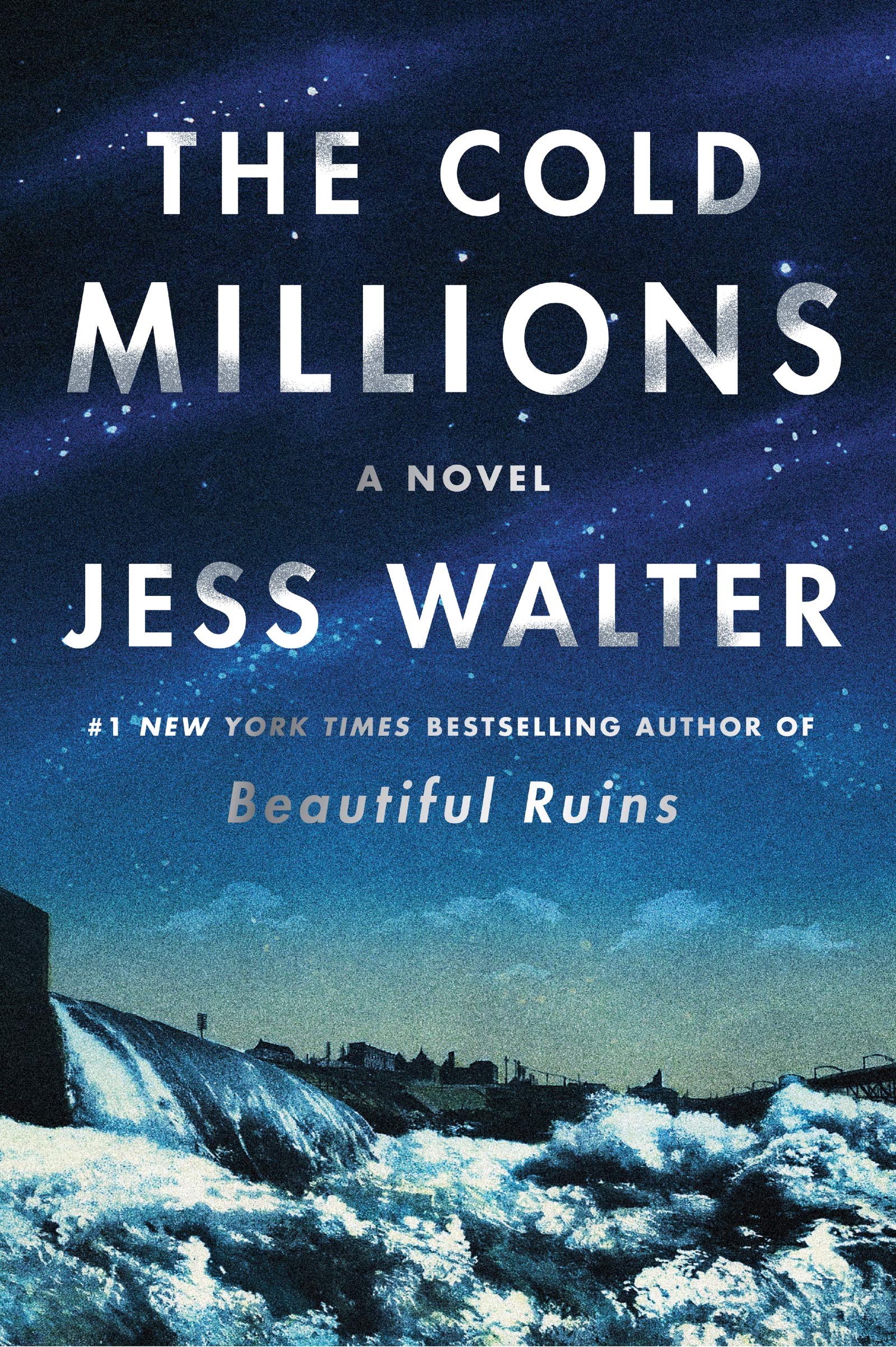
17. The Cold Millions, by Jess Walter (Oct. 27)
It has somehow already been eight years since Jess Walter wrote his bestselling novel Beautiful Ruins, a romantic Hollywood satire that is supposedly being adapted by the live-action Mulan director Niki Caro. His seventh novel, The Cold Millions, will return him to his hometown of Spokane, Washington, to tell the story of brothers Rye and Gig Dolan during the Industrial Workers of the World's free speech riots of 1909 and 1910. Author Anthony Doerr calls Walter's new book "a literary unicorn: a book about socio-economic disparity that's also a page-turner, a postmodern experiment that reads like a potboiler, and a beautiful, lyric hymn to the power of social unrest in American history," which is good enough for me. But it's also received starred reviews from both the trades, with Kirkus uncharacteristically summing the book up by writing: "We have heard that Jess Walter writes nonstop: Seven days a week, 365 days a year. Please, never stop."
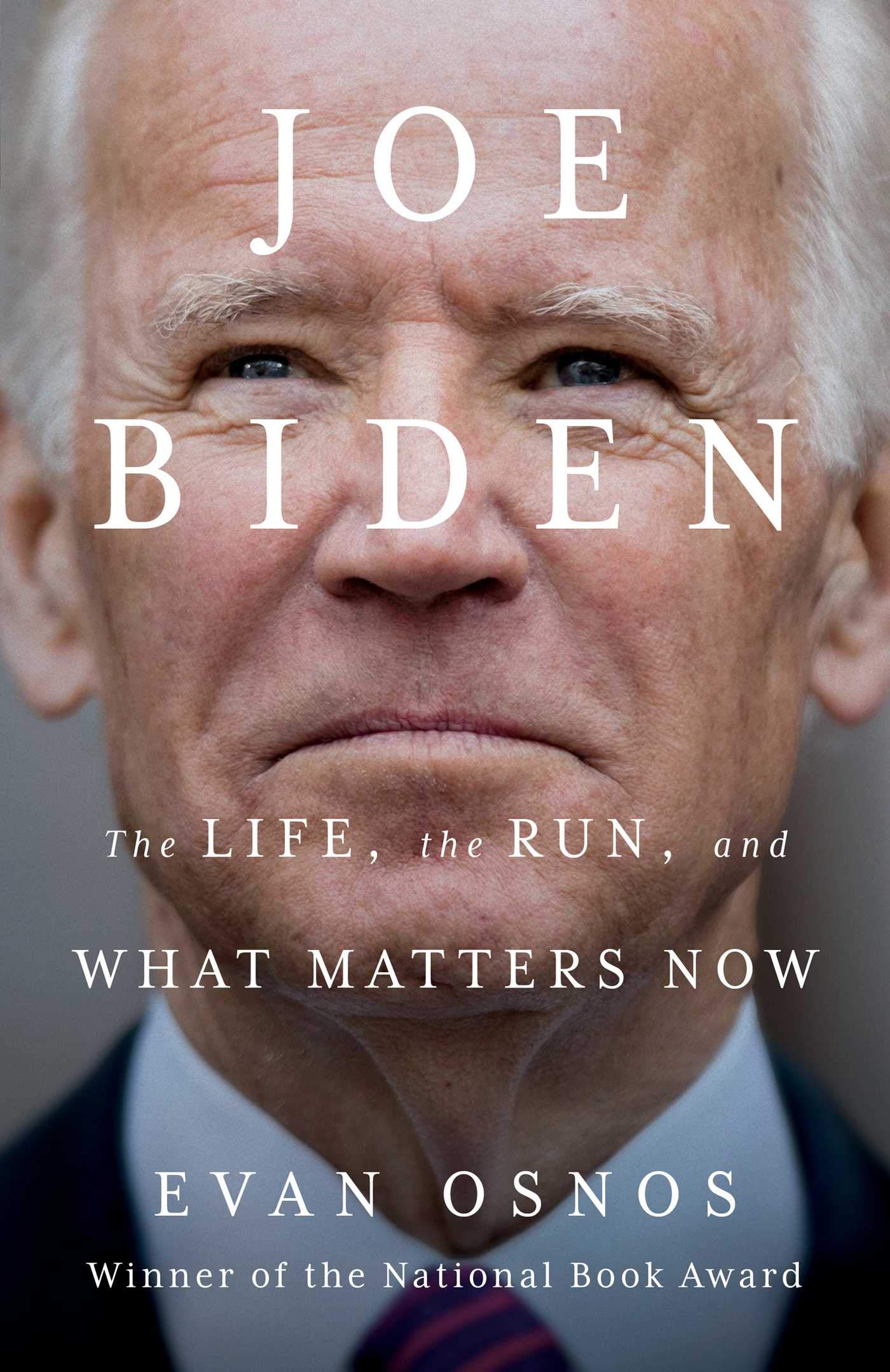
18. Joe Biden: The Life, the Run, and What Matters Now, by Evan Osnos (Oct. 27)
Only having been announced this week, there is still little information out there about this biography of Joe Biden, which you might note comes out just seven days before the election. But if you're a quick reader, and you preorder your copy, then you should have enough time to get through the listed 192-pages prior to learning how this chapter of Biden's story ends. That being said, regardless of how the election turns out, Osnos' work is absolutely worth reading (not always a given when it comes to political biographies!). Osnos is a former National Book Award winner and a staff writer at The New Yorker, where he's amply covered the former vice president. His new book will offer "a nuanced and deeply-reported portrait of Joe Biden — his political sojourn after being passed over for Hillary Clinton in 2016, his decision to challenge Donald Trump for the presidency, and his choice of Kamala Harris as his running mate," the publisher writes.
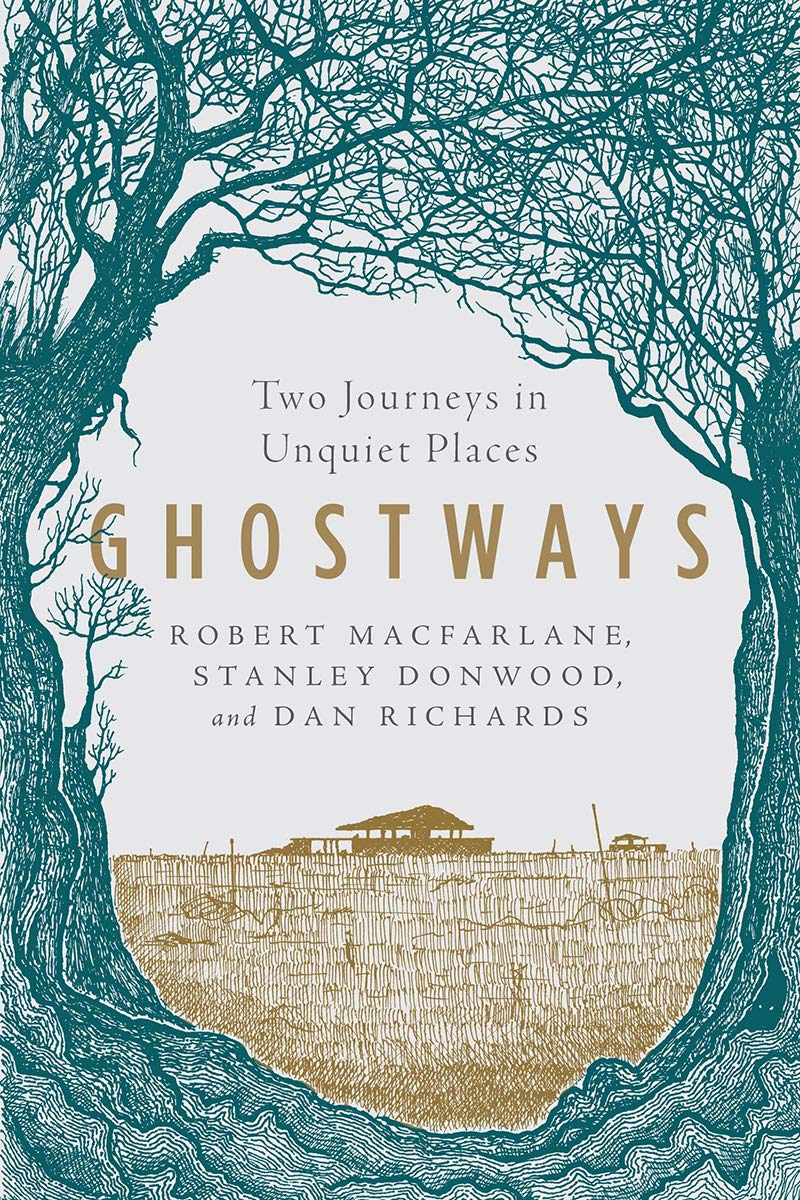
19. Ghostways: Two Journeys in Unquiet Places, by Robert Macfarlane, Stanley Donwood, and Dan Richards (Nov. 24)
Robert Macfarlane shot to the top of my list of favorite writers after I read 2019's Underland: A Deep Time Journey, a beautifully-written book about the worlds that exist beneath our feet. Ghostways is the nature writer's new project, a strange and lovely little diptych that explores man's mark on the landscapes of southern England. Writing with Dan Richards and working with artist Stanley Donwood, the first section of Ghostways focuses on Orford Ness, a spit of land off East Anglia that was once used for weapons tests and has since been reclaimed by nature. The second section focuses on a "holloway," or ancient path, worn into the rock of Exeter over thousands of years. Macfarlane has a truly magical way with words, and Ghostways plays boldly with form, blending wisps of dialogue and essay and illustration together. This is truly the perfect read for a haunting, gray late autumn day.
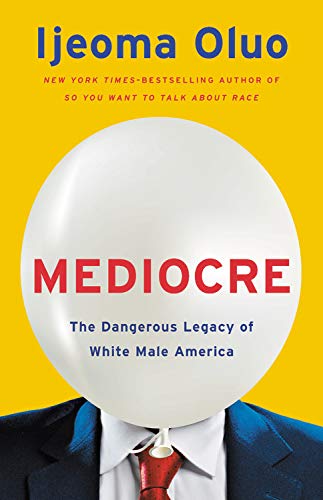
20. Mediocre: The Dangerous Legacy of White Male America, by Ijeoma Oluo (Dec. 1)
You might recognize Ijeoma Oluo's name from anti-racist reading lists that circulated this summer — or perhaps you've already read her New York Times bestseller, So You Want to Talk About Race. Her new book, Mediocre, "exposes the devastating consequences of white male supremacy on women, people of color, and white men themselves," her publisher writes. Michael Eric Dyson, the author of Long Time Coming, blurbed the book, raving that "there is no one more adept at parsing the toxic effects of white male privilege and systemic oppression than the immensely talented Ijeoma Oluo. Her brilliant book is a master class in understanding how systems of domination working relentlessly in the service of white male patriarchy not only harm all women and people of color, but ultimately hinder white men themselves from reaching greatness." It sounds like more than just an enlightening read — in fact, it sounds like it has the potential to be one of the most important books of the year.
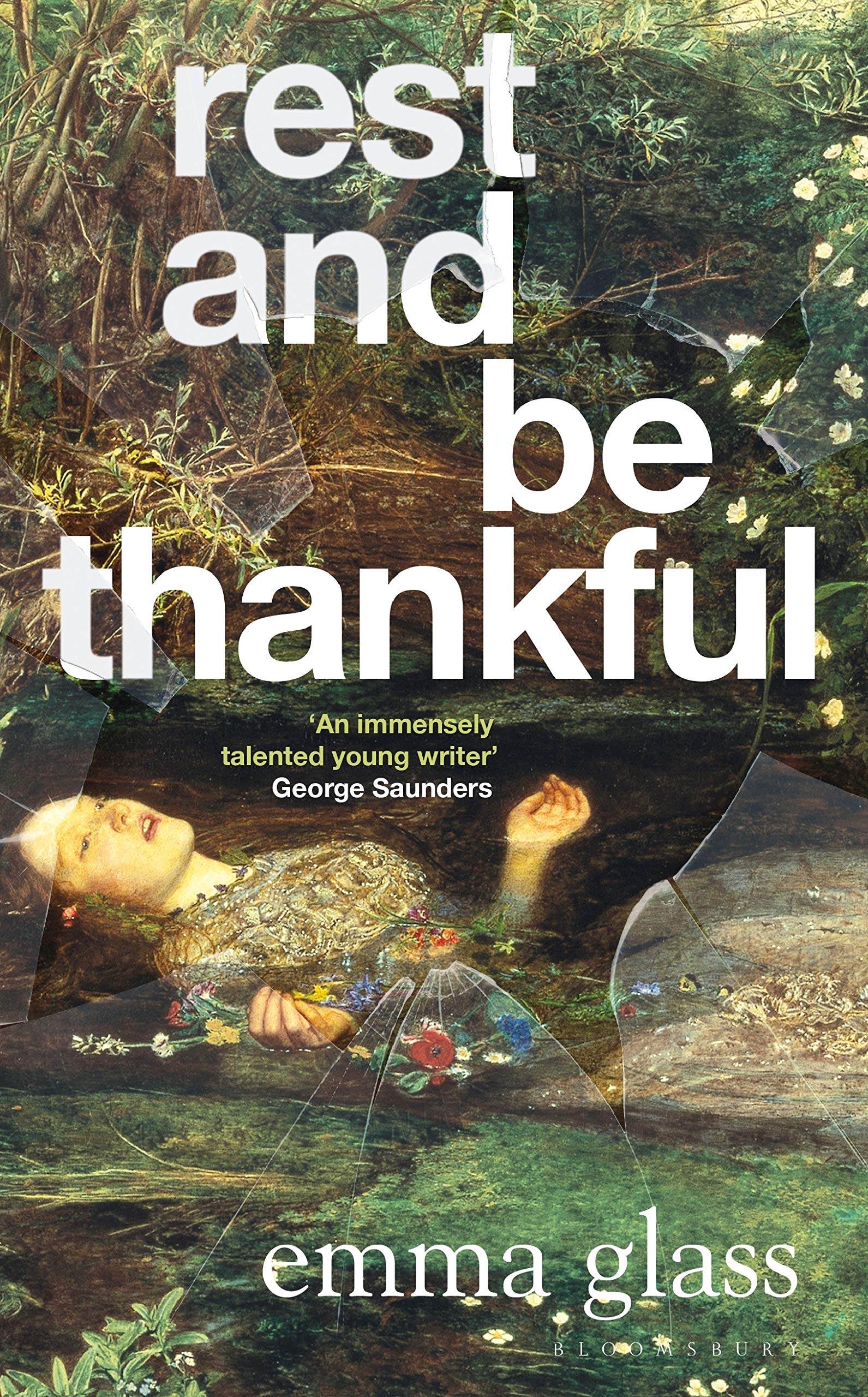
21. Rest and Be Thankful, by Emma Glass (Dec. 1)
It is fitting to close out the year with Emma Glass' novella Rest and Be Thankful, which asks us "how we care for caregivers," the Times Literary Supplement writes. Publishers Weekly additionally says its "readers will keep turning the pages in fascinated dread," as if I needed more reason to get excited. Rest and Be Thankful's protagonist, Laura, works night shifts in a London neonatal ward, where she toils through the hours to revive babies, or usher others into life (Glass writes from experience, working as she does as a children's nurse). Sleep-deprived and bleary, Laura soon begins to see a figure from her dreams in the hospital whenever there is a nearby death. "Rest and Be Thankful is almost absurdly pertinent, and with its devastating close, the answers seem stark: We ask far too much [from caregivers], and for some there is no replenishment," TLS writes.
Jeva Lange was the executive editor at TheWeek.com. She formerly served as The Week's deputy editor and culture critic. She is also a contributor to Screen Slate, and her writing has appeared in The New York Daily News, The Awl, Vice, and Gothamist, among other publications. Jeva lives in New York City. Follow her on Twitter.
-
 The Olympic timekeepers keeping the Games on track
The Olympic timekeepers keeping the Games on trackUnder the Radar Swiss watchmaking giant Omega has been at the finish line of every Olympic Games for nearly 100 years
-
 Will increasing tensions with Iran boil over into war?
Will increasing tensions with Iran boil over into war?Today’s Big Question President Donald Trump has recently been threatening the country
-
 Corruption: The spy sheikh and the president
Corruption: The spy sheikh and the presidentFeature Trump is at the center of another scandal
